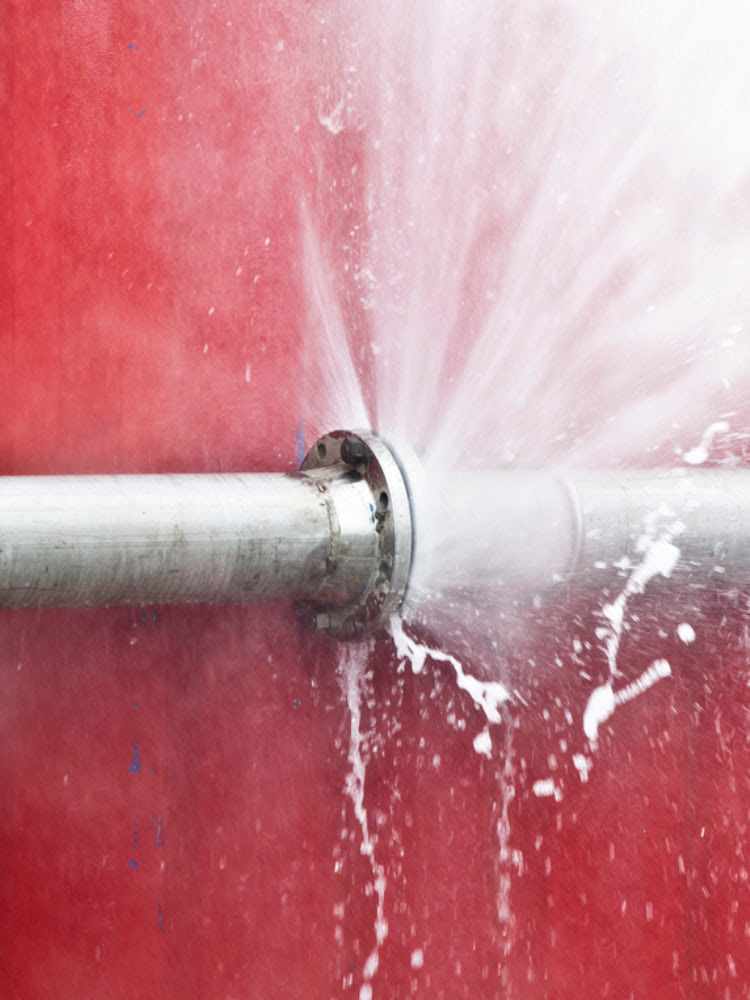Your Home's Common Common Factors of Leakage: Detailed Examination
Your Home's Common Common Factors of Leakage: Detailed Examination
Blog Article
Just how do you really feel about How Fast Water Damage Can Ruin Your Home?

Leaks not only create waste of water but can additionally trigger unnecessary damages to your home and promote undesirable organic development. Water leaks may go unnoticed given that most of the pipework in our residence is hidden. By understanding as well as looking for daily circumstances that create leaks, you can safeguard your house from future leaks as well as unneeded damages. Today, we will certainly consider 6 leak creates that may be creating your pipelines to leak.
Intruding origins
A lot of water leakages begin outside your house rather than inside it. If you notice a sudden decrease in water stress, say in your faucet, take some time to go out as well as analyze your lawn. You could observe wet spots or sinkholes in your lawn, which might mean that tree roots are attacking water lines triggering water to leak out. You can have your plumber check for invasion, specifically if you have trees or hedges near your building.
Rusty water supply
This might be the cause of staining or warping on your water pipelines. If our plumbing system is old, think about replacing the pipes considering that they are at a greater threat of rust than the more recent models.
Defective Pipeline Joints
The point at which your pipes link is regularly the weakest link in the waterline. Pipe joints can weaken with time, causing water leaks. Unfortunately, most of pipe joints are not easily visible. If you have loud pipelines that make ticking or banging noises, especially when the hot water is activated, your pipe joints are most likely under a great deal of pressure. It is suggested to have your plumber inspect your system once a year.
Instant temperature level modifications.
Extreme temperature adjustments in our pipelines can cause them to expand as well as get unexpectedly. This expansion as well as tightening might create splits in the pipes, especially if the temperature are below freezing.
Poor Water Connectors
At times, a leak can be triggered by loose tubes as well as pipelines that supply your devices. In instance of a water connections leak, you might notice water running straight from the supply line or puddles around your devices.
Blocked Drains
Clogged drains pipes might be frustrating and inconveniencing, yet they can sometimes end up triggering an overflow bring about rupture pipelines. Keep getting rid of any type of materials that may decrease your drains pipes that can obstruct them to stay clear of such aggravations.
All the above are causes of leakages yet not all water leakages arise from plumbing leaks; some leakages might come from roof leaks. All leakages must be fixed right away to prevent water damage.
Leaks not only create waste of water however can likewise cause unnecessary damage to your house as well as advertise unwanted organic growth. By looking and also comprehending for day-to-day circumstances that cause leaks, you can safeguard your home from future leakages as well as unnecessary damages. Today, we will look at six leakage triggers that may be causing your pipelines to trickle.
At times, a leak can be created by loosened hose pipes and also pipes that supply your devices. In situation of a water links leak, you might notice water running directly from the supply line or puddles around your home appliances.
How To Check For Water Leak In Your Home
How To Check for Leaks
The average household's leaks can account for nearly 10,000 gallons of water wasted every year and ten percent of homes have leaks that waste 90 gallons or more per day. Common types of leaks found in the home are worn toilet flappers, dripping faucets, and other leaking valves. These types of leaks are often easy to fix, requiring only a few tools and hardware that can pay for themselves in water savings. Fixing easily corrected household water leaks can save homeowners about 10 percent on their water bills.
To check for leaks in your home, you first need to determine whether you're wasting water and then identify the source of the leak. Here are some tips for finding leaks:
Take a look at your water usage during a colder month, such as January or February. If a family of four exceeds 12,000 gallons per month, there are serious leaks.
Check your water meter before and after a two-hour period when no water is being used. If the meter changes at all, you probably have a leak.
Identify toilet leaks by placing a drop of food coloring in the toilet tank. If any color shows up in the bowl after 10 minutes, you have a leak. (Be sure to flush immediately after the experiment to avoid staining the tank.)
Examine faucet gaskets and pipe fittings for any water on the outside of the pipe to check for surface leaks.
Undetected water leaks can happen without the home or business owner even realizing. If you suspect a water leak, but not able to find the source. It is time to contact a professional water leak detection service, The Leak Doctor.
How To Find a Water Leak In Your Home
https://www.leakdoctor.com/blog/How-To-Check-For-Water-Leak-In-Your-Home_AE197.html

Do you like reading up on Common Water Leaks In House? Place feedback further down. We'd be pleased to listen to your insights about this blog posting. We are looking forward to see you back again before long. Liked our posting? Please share it. Let another person find it. I am grateful for your time. Visit us again soon.
Immediate relief, just a call. Report this page